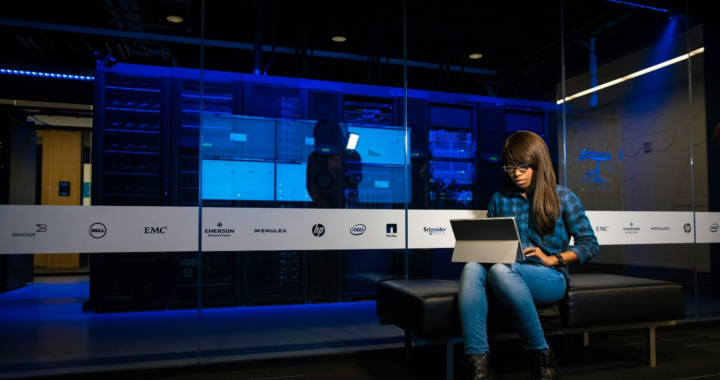Considering the recent developments in digital investigations, it is evident that two critical fields—computer forensics vs. mobile forensics—stand at the forefront. Both share a common goal: to extract, analyze, and present digital evidence that can solve cybercrimes or serve as crucial evidence in legal cases. However, while their objectives overlap, their methodologies and technological tools are distinct. In this blog, we’ll delve deep into the differences between computer forensics vs. mobile forensics, exploring the specific technologies, procedures, and applications of each field. By the end, you’ll gain a clear understanding of how both fields operate and the unique roles they play in digital investigations.
What is Computer Forensics?
Computer forensics refers to the investigation of data stored on computers and related devices such as laptops, servers, or external hard drives. A digital forensic engineer in this field is responsible for examining and retrieving digital information from these devices in a manner that ensures the data’s integrity, enabling it to be used in legal proceedings. Whether it’s recovering deleted files, tracking down malware, or analyzing internet history, computer forensics plays a vital role in modern-day investigations.
Technologies Used in Computer Forensics
A variety of sophisticated tools are employed by digital forensic consultants in computer forensics to conduct in-depth investigations. Some of these tools include:
- Disk Imaging Tools: These tools create a replica of a hard drive, preserving the original data for analysis.
- File Carving: Techniques used to recover deleted files or fragmented data stored on a computer’s drive.
- Data Encryption Tools: Used to decrypt or break through encrypted files and systems.
- Forensic Software: Applications like EnCase, FTK, and Autopsy help investigators analyze hard drives, registry data, emails, and internet history.
Applications of Computer Forensics
Computer forensics is widely used to investigate cases of cybercrime, such as hacking, identity theft, fraud, and intellectual property theft. It’s also applied in cases of insider threats, where employees may have accessed sensitive information or tampered with company systems.
What is Mobile Forensics?
In contrast, mobile forensics focuses on the retrieval and analysis of data from mobile devices such as smartphones and tablets. As mobile devices have become an integral part of daily life, the types of data stored on them—messages, calls, social media activity, photos, and videos—provide a wealth of information for forensic experts. The practice of mobile device forensics involves the extraction of this data in a forensically sound manner.
Technologies Used in Mobile Forensics
The technologies employed in mobile forensics are designed to tackle the specific challenges posed by mobile devices. Some of these tools include:
- Mobile Extraction Software: Tools such as Cellebrite, UFED, and XRY extract data from mobile devices, including deleted messages and call logs.
- SIM Card Readers: These devices allow investigators to access information stored on a phone’s SIM card, such as contacts and text messages.
- Mobile Backup Data: Analysis of cloud backups from services like iCloud or Google Drive to recover deleted or inaccessible data.
- App Data Extraction: For recovering data from messaging apps, social media, and other third-party apps.
Applications of Mobile Forensics
Mobile device forensics plays a significant role in investigating criminal activities where mobile devices are involved. Crimes like drug trafficking, online harassment, and child exploitation frequently involve the analysis of a suspect’s mobile phone for evidence. Additionally, forensic cell phone data recovery is often used in cases of accidental or intentional data deletion, helping investigators recover forensic pictures and other critical information that may have been deleted.
Key Differences Between Computer Forensics and Mobile Forensics
While both fields are centered on extracting and analyzing digital data, the methods, tools, and complexities involved can differ greatly. Here are some of the primary distinctions between computer forensics vs. mobile forensics:
1. Device Types and Data Sources
- Computer Forensics: Focuses on extracting and analyzing data from traditional computing devices such as desktops, laptops, and servers. These devices generally store data in fixed locations, such as hard drives or external storage devices, using standardized file systems like FAT32 or NTFS.
- Mobile Forensics: Deals with mobile devices like smartphones, tablets, and wearable technology. Mobile devices are more complex due to the variety of apps, sensors (GPS, accelerometer), and communication methods they utilize (Wi-Fi, cellular, Bluetooth). This complexity introduces multiple sources of data, including SIM cards, internal memory, and external SD cards.
2. Data Storage and Management
- Computer Forensics: Data is generally stored in large, structured formats on hard drives or servers, often in a more predictable and accessible format. Digital forensic engineers can rely on well-established file systems, making the process of searching, recovering, and analyzing data more straightforward.
- Mobile Forensics: Mobile devices store data in a more fragmented manner. Data is distributed across multiple partitions, apps, cloud services, and encrypted storage areas. The dynamic nature of mobile operating systems (iOS, Android) also means data can be stored in various locations, such as app caches, cloud backups, or within the device’s secure areas (e.g., iPhone’s Secure Enclave).
3. Data Recovery Methods
- Computer Forensics: Investigators use tools like disk imaging and file carving to recover deleted or hidden files. These techniques allow for the complete recovery of hard drives, even if files have been erased or partially overwritten.
- Mobile Forensics: Data recovery from mobile devices requires specialized tools and techniques due to the use of flash memory and dynamic file systems. Mobile devices frequently overwrite deleted data, making recovery more challenging. Investigators often use extraction methods like logical, physical, and file system extraction to recover messages, call logs, and forensic cell phone data recovery from the device’s storage.
- Encryption and Security Challenges
- Computer Forensics: While computers may have encryption measures, such as whole-disk encryption (e.g., BitLocker, FileVault), forensic experts often have a wider array of software solutions to decrypt and analyze the data.
- Mobile Forensics: Mobile devices typically employ more advanced and sophisticated encryption techniques. For example, iOS devices use Secure Enclave, while Android phones have full-disk encryption, making access to critical data more challenging. Tools like Cellebrite and XRY are used to bypass these security layers, but the process can be difficult without the correct permissions or keys.
5. Data Types and Content
- Computer Forensics: Computers generally contain larger volumes of structured data like documents, emails, databases, and system logs. Investigators might look for patterns in internet activity, recover deleted files, or analyze installed software to detect malicious programs or track user actions.
- Mobile Forensics: Mobile devices store a wide array of multimedia content, including messages, photos, videos, and app-specific data. As a result, mobile device forensics often focuses on recovering communication records, multimedia files, and geolocation data, which can provide critical evidence in cases involving stalking, harassment, or criminal conspiracies. This field also often requires the expertise of forensic video analysis experts and forensic audio specialists to recover forensic pictures or authenticate multimedia evidence.
6. Multimedia Evidence Handling
- Computer Forensics: Multimedia files such as images, audio recordings, and videos are usually less common on traditional computers, but when present, they tend to be larger and more structured. Investigators use software to analyze metadata and file history.
- Mobile Forensics: Mobile devices are more likely to contain personal multimedia, such as photos, videos, and voice messages from messaging apps. Forensic experts in this field often work with data from apps like WhatsApp, Snapchat, or Instagram. Tools are used to extract this data from cloud backups or directly from the device. In such cases, professionals like a forensic audio specialist or forensic video analysis expert may be required to authenticate and verify the integrity of multimedia evidence.
How Are They Used to Solve Different Types of Crimes?

In many criminal cases, digital forensics provides the evidence needed to close investigations, either by directly identifying the suspect or corroborating existing leads. Here’s how computer forensics vs. mobile forensics are applied in different types of crimes:
- Cybercrime Investigations: Computer forensics is essential in tracking down hackers, analyzing malicious code, or uncovering data breaches. Meanwhile, mobile forensics is often used to uncover the use of mobile applications in phishing schemes or online scams.
- Personal Crimes: In cases of harassment, stalking, or online threats, mobile device forensics can reveal call logs, messages, and social media activity that help trace the origin of the crime.
- Fraud and Financial Crimes: Computer forensics is frequently used to trace digital footprints in cases involving financial fraud, including phishing attacks, unauthorized transactions, and intellectual property theft.
- Multimedia Evidence: When digital media like videos or audio files are involved, the expertise of a forensic video analysis expert or forensic audio specialist is crucial. These professionals ensure the authenticity of the evidence ensuring the integrity of the data in court.
Choosing the Right Forensic Service
Whether dealing with computer or mobile devices, digital forensics plays a pivotal role in solving crimes, protecting businesses, and ensuring justice. While both computer forensics consultants vs. mobile forensics share the same goal, they require different approaches, tools, and expertise to achieve success.
At Eclipse Forensics, our certified digital forensic engineers are experienced in handling both fields of digital forensics. Whether you need assistance with mobile device forensics, forensic cell phone data recovery, recovery of forensic pictures, or require a forensic video analysis expert to authenticate videos in forensics, we are equipped to handle even the most complex cases. Contact us today for professional and reliable forensic services!





